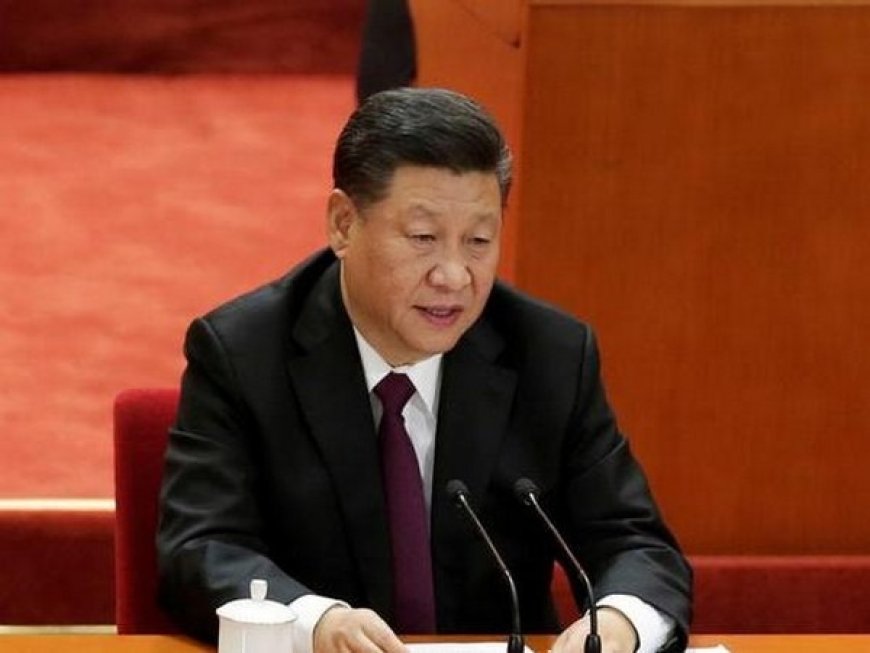China Faces Mounting Pressure to Boost Economy Amidst Rate Cut Skepticism
China faces mounting pressure to boost its economy amidst skepticism about rate cuts. Infrastructure spending and special bonds are under consideration.

China is confronting increasing pressure to stimulate its economy as doubts arise about the effectiveness of rate cuts. In a bid to ignite economic growth, authorities are contemplating bolstering infrastructure spending and raising the quota for local government special-purpose bonds. Analysts from Nomura Holdings Inc., Standard Chartered Plc, and Morgan Stanley suggest that the central government may issue special-purpose bonds or employ state policy banks to boost expenditure.
Government data released by the Ministry of Finance indicates weak fiscal support this year, with minimal growth in total government spending during the first five months compared to the same period last year. This lackluster performance has contributed to a slowdown in China's economic recovery.
The State Council, responsible for coordinating government ministries, acknowledged the necessity for more robust policies to support the economy. State media reported that the government is currently examining new measures, though no timeline or details were provided.
Wang Tao, Chief China Economist at UBS Group AG, stressed the importance of fiscal policy playing a more significant role in revitalizing the economy. While direct subsidies to households are unlikely, Wang suggests that increased funding support for infrastructure investment may be in the pipeline.
Following the initial surge in economic activity after reopening, recent data indicates a slowdown, prompting a shift in China's policy stance. Major financial institutions, including JPMorgan Chase & Co., UBS Group AG, and Standard Chartered Plc, have revised their GDP growth forecasts for 2023 downward, reflecting concerns about retail sales growth and fixed asset investment figures falling short of expectations.
The central bank's recent interest rate cut, the first in ten months, is expected to be followed by further easing throughout the remainder of the year. However, the effectiveness of monetary policy is constrained by low private sector confidence, with businesses and households reluctant to borrow.
To counteract the downturn in the property sector, the State Council is reportedly considering a comprehensive package of support measures, including incentives to boost consumption and support for the struggling property sector.
To seek advice on revitalizing the economy, senior officials have engaged in discussions with business leaders and economists. Striking a balance between boosting confidence and managing financial risk remains a challenge.
Michael Hirson, China economist at 22V Research LLC and former US Treasury attache in Beijing, notes that China has ample room for stimulus measures but cites concerns over financial risks and the central government's reluctance to leverage its balance sheet for fiscal stimulus as key obstacles.
Revenue from land sales to developers, which partially funds infrastructure spending, has been impacted by the ongoing property sector downturn. Additionally, local governments are allocating more resources to servicing debts, limiting available funds for other expenditures.
So far this year, local governments have been slow to utilize their annual quota for special-purpose bonds. Data compiled by Bloomberg indicates that the issuance of such bonds has fallen short compared to the same period in the previous year.
Nomura predicts that Beijing may increase the issuance quota for local government special bonds by an additional 500 billion yuan, while Morgan Stanley suggests an increase of up to 1.1 trillion yuan by using unused quota from previous years.
Furthermore, the central government could potentially issue its own special sovereign bonds, a measure it has previously used during crises such as the pandemic.
State policy banks, such as China Development Bank, could also play a role in boosting infrastructure investment. In 2020, these banks provided significant funding for projects, further stimulating investment in infrastructure.
In addition to increased infrastructure investment, the government is focusing on targeted support measures. The Commerce Ministry has announced forthcoming measures to promote the growth of industries, including automobiles, home appliances, and catering. Policies aimed at boosting consumption, such as incentivizing car purchases and expanding electric vehicle charging station networks, are also under consideration.
While the government has adhered to maintaining a deficit target within 3% of its general budget to ensure fiscal health, it has shown more flexibility in its capital spending budget.
Tianlei Huang, China Program Coordinator at the Peterson Institute for International Economics, suggests that the government's hesitation to spend more on-budget funds to stimulate growth stems from available resources both at the central and local levels. Huang emphasizes that resources can be tapped into to increase spending if the government genuinely prioritizes restoring growth.
Also Read: Disturbing Surge: US Witnessed Over 109,000 Drug Overdose Deaths in the Past Year






























































